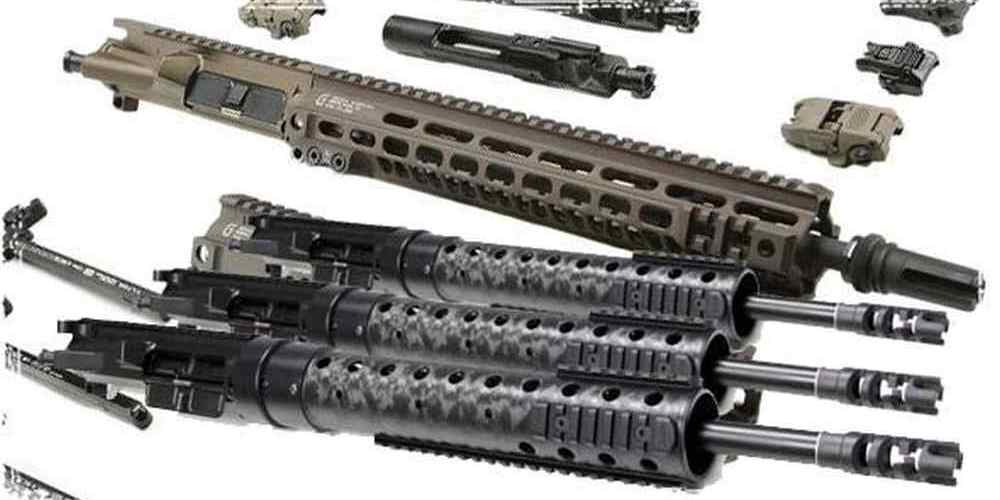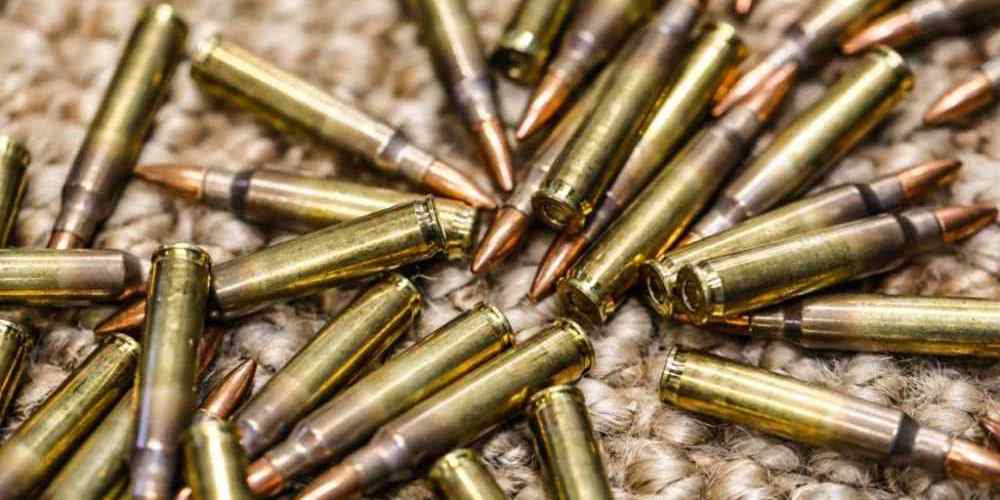“Choose your ammo wisely to keep your AR15 happy and shooting smoothly.”
Inconsistent Performance with Steel-Cased Ammo
If you own an AR15 rifle, you know that it is a versatile and reliable firearm that can handle a wide range of ammunition. However, you may have noticed that your AR15 does not always perform consistently with certain brands of ammo. One common issue that many AR15 owners encounter is inconsistent performance when using steel-cased ammunition.
Steel-cased ammo has become increasingly popular in recent years due to its affordability compared to brass-cased ammo. While steel-cased ammo can be a cost-effective option for target shooting and training, it may not always be the best choice for your AR15. The main reason for this is that steel-cased ammo can cause increased wear and tear on your rifle’s chamber and extractor.
Unlike brass-cased ammo, which is softer and more malleable, steel-cased ammo is harder and less flexible. This can lead to increased friction and heat buildup in the chamber, which can cause the steel casing to expand and stick in the chamber. This can result in extraction issues, such as failure to extract or stovepipes, which can affect the reliability and performance of your AR15.
In addition to extraction issues, steel-cased ammo can also cause increased wear on your rifle’s extractor. The harder steel casing can cause more stress on the extractor as it tries to pull the spent casing out of the chamber. Over time, this can lead to extractor wear and potentially even breakage, which can be costly to repair.
Another factor to consider when using steel-cased ammo in your AR15 is the quality of the ammunition itself. Steel-cased ammo is often manufactured using lower-quality components and may not be as consistent in terms of powder charge and bullet weight as brass-cased ammo. This can lead to variations in velocity and accuracy, which can affect your shooting performance.
If you are experiencing inconsistent performance with steel-cased ammo in your AR15, there are a few things you can try to improve reliability. First, make sure you are using high-quality steel-cased ammo from reputable manufacturers. Cheaper, lower-quality steel-cased ammo may be more prone to issues such as misfires and malfunctions.
You can also try cleaning and lubricating your rifle more frequently when using steel-cased ammo. The increased friction and heat generated by steel-cased ammo can cause more carbon buildup in your rifle’s chamber and bore, which can affect reliability. Regular cleaning and lubrication can help prevent these issues and keep your AR15 running smoothly.
In conclusion, while steel-cased ammo can be a cost-effective option for target shooting and training, it may not always be the best choice for your AR15. The increased wear and tear on your rifle’s chamber and extractor, as well as the potential for extraction issues and variations in performance, make steel-cased ammo less than ideal for some AR15 owners. If you are experiencing inconsistent performance with steel-cased ammo, consider switching to brass-cased ammo or trying different brands to see if that improves reliability.

Overpressure Issues with +P Ammunition
If you own an AR15 rifle, you know how important it is to choose the right ammunition for optimal performance. While most ammunition brands work well with this popular firearm, there are some instances where your AR15 might not like certain ammo brands. One common issue that can arise is overpressure problems with +P ammunition.
Overpressure occurs when the pressure inside the cartridge exceeds safe levels, causing potential damage to the firearm and posing a safety risk to the shooter. +P ammunition, also known as overpressure ammunition, is loaded to higher pressures than standard ammunition to achieve increased velocity and energy. While this can be beneficial for certain applications, it can also lead to problems when used in firearms not designed to handle the increased pressure.
One reason why your AR15 might not like certain ammo brands is that the rifle may not be rated for use with +P ammunition. AR15 rifles are typically chambered for standard pressure ammunition, and using overpressure rounds can put excessive stress on the firearm’s components. This can lead to accelerated wear and tear, increased recoil, and potentially dangerous malfunctions.
Another factor to consider is the quality control of the ammunition manufacturer. Some brands may have looser tolerances in their manufacturing process, leading to inconsistencies in pressure levels from one round to the next. This can result in overpressure issues that can cause damage to your AR15 and compromise your shooting experience.
It’s important to do your research and choose reputable ammunition brands that are known for their quality and consistency. Look for brands that have a good reputation for producing reliable ammunition that meets industry standards for pressure levels. Avoid using reloaded or remanufactured ammunition, as these may not undergo the same rigorous testing and quality control measures as factory-new rounds.
If you’re unsure about whether a particular brand of ammunition is safe to use in your AR15, consult with the manufacturer or a qualified gunsmith for guidance. They can provide valuable insight into the compatibility of certain ammo brands with your firearm and help you make an informed decision.
In conclusion, overpressure issues with +P ammunition can cause problems for your AR15 if not used properly. Be mindful of the pressure levels of the ammunition you choose and stick to brands that are known for their quality and consistency. By taking these precautions, you can ensure that your AR15 performs reliably and safely every time you pull the trigger.
Failure to Cycle Properly with Subsonic Rounds
If you own an AR15 rifle, you know that it is a versatile and reliable firearm. However, you may have encountered issues with certain types of ammunition not cycling properly through your rifle. One common problem that AR15 owners face is the failure to cycle properly with subsonic rounds.
Subsonic ammunition is designed to travel at speeds below the speed of sound, which can make it quieter when fired. While this can be advantageous for certain applications, such as hunting or target shooting, it can also cause issues with the cycling of your AR15.
One reason why your AR15 might not like certain subsonic ammo brands is due to the lower pressure generated by these rounds. Subsonic ammunition typically has less gunpowder than standard ammunition, which can result in a weaker recoil impulse. This can lead to the bolt not cycling properly, causing malfunctions such as failure to eject or failure to feed.
Another factor to consider is the weight of the bullet. Subsonic rounds often have heavier bullets than standard ammunition, which can affect the cycling of your AR15. The heavier bullet can create more resistance as it travels down the barrel, which can impact the timing of the cycling process.
Additionally, the overall design of the subsonic round can play a role in how well it cycles through your AR15. Some subsonic ammunition is specifically designed for use in bolt-action rifles or handguns, which may not be compatible with the semi-automatic action of an AR15. This can result in feeding issues or failures to chamber properly.
If you are experiencing cycling issues with subsonic ammunition in your AR15, there are a few steps you can take to address the problem. One option is to try different brands of subsonic ammunition to see if there is a particular brand that cycles more reliably in your rifle. Some brands may have slightly different pressure levels or bullet weights that can make a difference in how well they cycle.
Another option is to adjust the gas system on your AR15. The gas system is responsible for cycling the action of the rifle, and adjusting it can help ensure that the rifle functions properly with subsonic ammunition. By adjusting the gas block or gas tube, you can increase or decrease the amount of gas that is used to cycle the action, which can help improve reliability with subsonic rounds.
In conclusion, if your AR15 is not cycling properly with certain subsonic ammunition brands, there are a few factors to consider. The lower pressure, heavier bullets, and overall design of the round can all impact how well it cycles through your rifle. By experimenting with different brands of subsonic ammunition and adjusting the gas system on your AR15, you can help ensure that your rifle functions reliably with subsonic rounds.
Accuracy Concerns with Bi-Metal Jacketed Bullets
If you own an AR15 rifle, you know how important it is to find the right ammunition for optimal performance. While most AR15s are versatile and can handle a variety of ammo brands, some rifles may not perform as well with certain types of bullets. One common issue that AR15 owners may encounter is accuracy concerns with bi-metal jacketed bullets.
Bi-metal jacketed bullets are a popular choice for many shooters due to their affordability and availability. These bullets are typically made with a steel core and a copper or brass coating. While bi-metal jacketed bullets can be cost-effective, they may not always be the best option for your AR15 rifle.
One of the main reasons why your AR15 might not like certain ammo brands is due to the composition of the bullet itself. Bi-metal jacketed bullets are harder than traditional copper jacketed bullets, which can cause increased wear and tear on the barrel of your rifle. This can lead to decreased accuracy over time and potentially damage the rifling of your barrel.
In addition to increased wear on your barrel, bi-metal jacketed bullets can also cause issues with barrel fouling. The steel core of these bullets can create more friction as they travel down the barrel, leading to a buildup of copper and steel residue. This can affect the accuracy of your shots and may require more frequent cleaning to maintain optimal performance.
Another factor to consider when using bi-metal jacketed bullets in your AR15 is the potential for increased barrel heat. The harder composition of these bullets can generate more heat as they are fired, which can lead to faster barrel heating and potentially affect the accuracy of your shots. This is especially important to consider if you are shooting in rapid succession or in high-volume shooting situations.
While bi-metal jacketed bullets may not be the best option for your AR15 rifle, there are alternative ammunition brands that can provide better performance and accuracy. Copper jacketed bullets are a popular choice for many shooters due to their softer composition and ability to provide consistent performance. These bullets are less likely to cause wear on your barrel and can help maintain the accuracy of your shots over time.
When selecting ammunition for your AR15 rifle, it is important to consider the composition of the bullets and how they may affect the performance of your rifle. While bi-metal jacketed bullets may be a cost-effective option, they may not always provide the best accuracy for your AR15. By choosing ammunition brands that are compatible with your rifle and provide consistent performance, you can ensure that your AR15 is operating at its best.
Reliability Problems with Re-manufactured Ammunition
If you own an AR15, you know how important it is to choose the right ammunition for your rifle. While most AR15s are designed to be versatile and reliable, some rifles may not perform as well with certain ammo brands. One common issue that AR15 owners may encounter is reliability problems with re-manufactured ammunition.
Re-manufactured ammunition, also known as reloaded ammunition, is ammunition that has been previously fired and then reloaded with new components. While re-manufactured ammo can be a cost-effective option for shooters, it can also pose some reliability issues, especially in rifles like the AR15.
One of the main reasons why your AR15 might not like certain re-manufactured ammo brands is due to inconsistencies in the reloading process. When re-manufacturing ammunition, there is a risk of not properly resizing the brass casings, which can lead to feeding and extraction issues in your rifle. Additionally, the quality of the components used in re-manufactured ammo may vary, leading to inconsistent performance and accuracy.
Another factor to consider is the pressure levels of re-manufactured ammunition. Some reloaded rounds may not meet the same pressure standards as factory-loaded ammunition, which can affect the cycling of your AR15. If the pressure levels are too low, your rifle may not cycle properly, leading to malfunctions. On the other hand, if the pressure levels are too high, it can put unnecessary stress on your rifle and potentially cause damage.
It’s also important to note that re-manufactured ammunition may not undergo the same quality control measures as factory-loaded ammo. This means that there is a higher risk of encountering dud rounds or other defects that can affect the reliability of your AR15. In a worst-case scenario, using low-quality re-manufactured ammo can even pose a safety hazard to the shooter.
To ensure the reliability of your AR15, it’s recommended to stick with reputable ammo brands that have a proven track record of quality and consistency. While re-manufactured ammunition can be a cost-effective option, it’s important to do your research and choose a reputable manufacturer that follows strict quality control measures.
If you do decide to use re-manufactured ammunition in your AR15, it’s a good idea to test a small batch first to see how your rifle performs. Pay attention to any feeding or extraction issues, as well as the overall accuracy of the rounds. If you encounter any reliability problems, it may be best to switch to a different brand of ammo that is better suited for your rifle.
In conclusion, while re-manufactured ammunition can be a cost-effective option for shooters, it’s important to be aware of the potential reliability issues that can arise when using it in your AR15. By choosing reputable ammo brands and paying attention to the quality of the components used, you can ensure that your rifle performs reliably and safely every time you pull the trigger.




